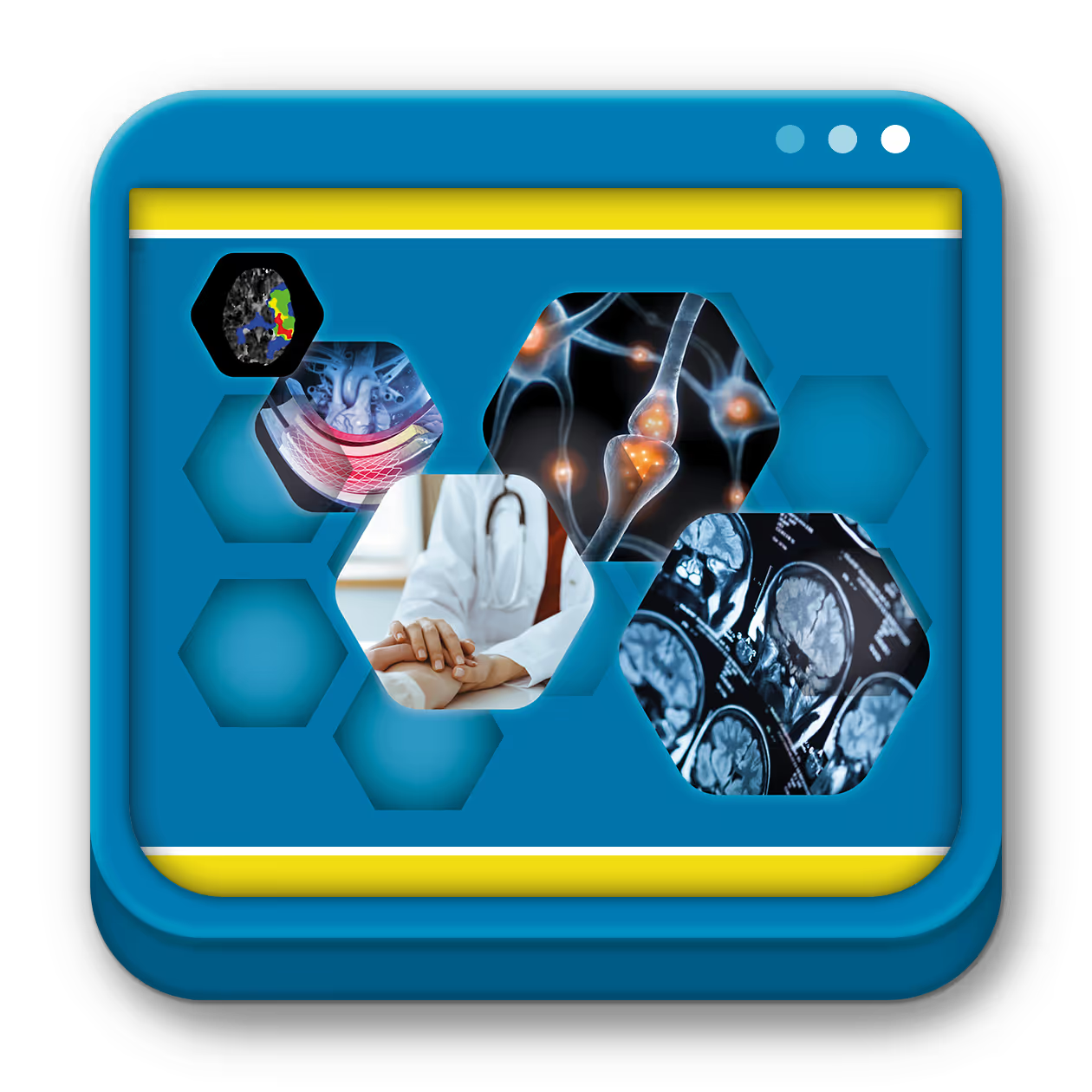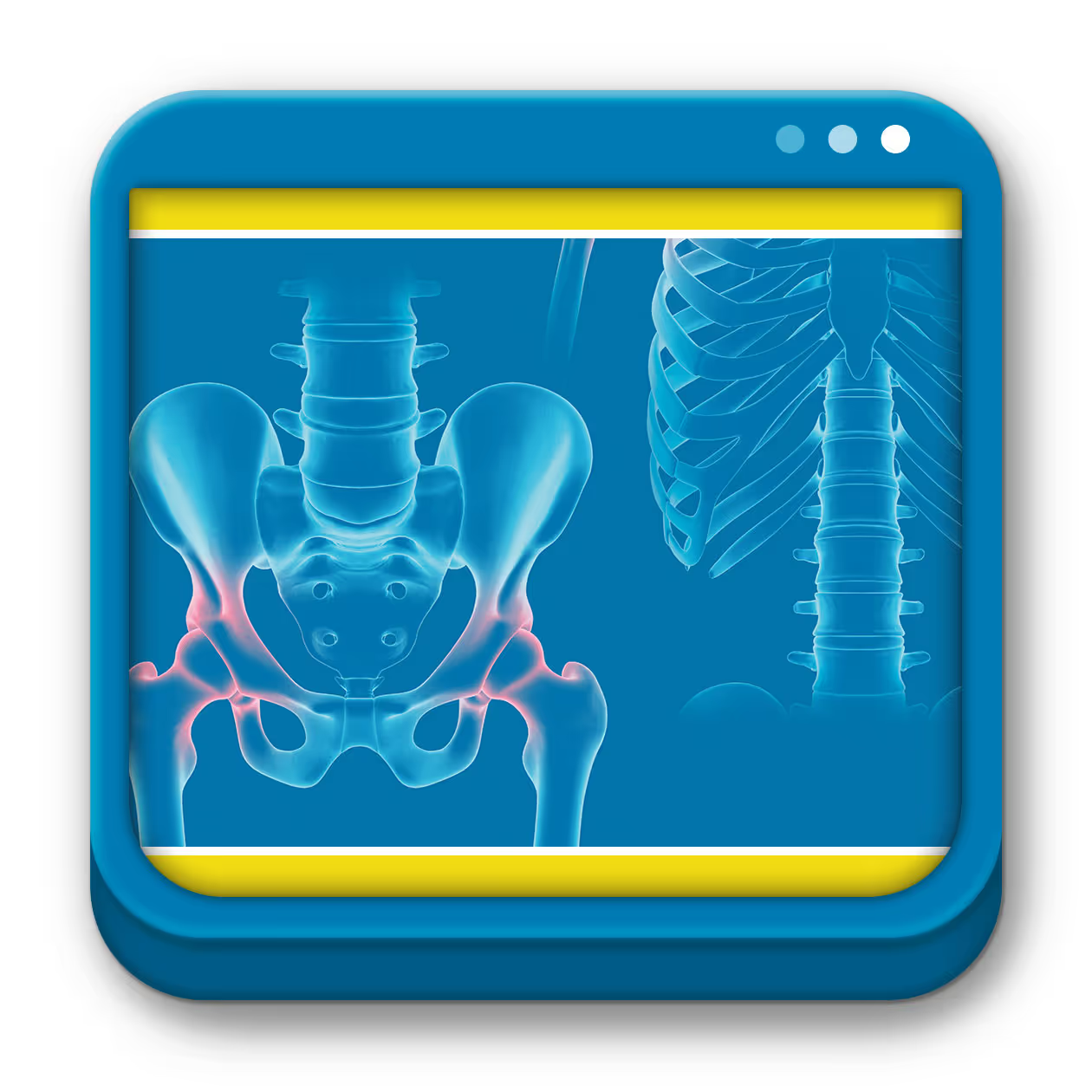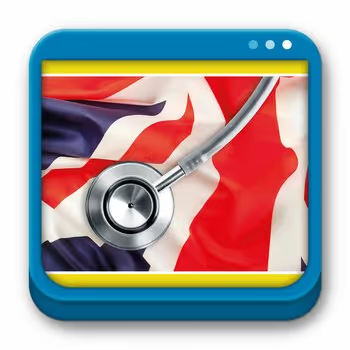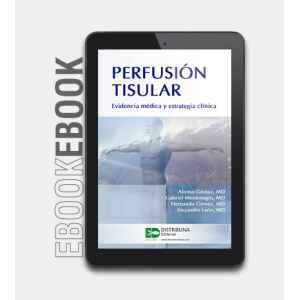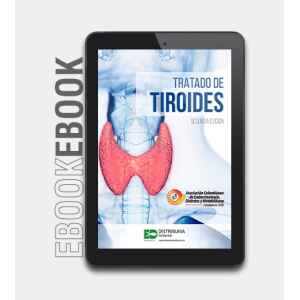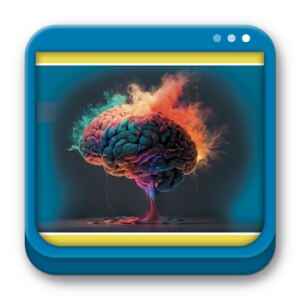D´andria – Ebook Medical and Scientific English 1 Ed. 2024
El precio original era: $116,000.00.$109,900.00El precio actual es: $109,900.00.
TABLA DE CONTENIDO:
UNIT 1 MEDICAL LANGUAGE AND INTRODUCTION TO THE HUMAN BODY
LESSON 1 Welcome to medical English!
- The history of medical English
- Communicating with patients in English
- Spelling
- Pronunciation
LESSON 2 Word structure in medical English
- Word structure in medical English
- Word roots
- Prefixes
- Suffixes
- Combining words
- Abbreviations
- EXERCISES Lesson 1
- Lesson 2
LESSON 3 Talking about the body
- Introduction
- Body planes and directions
- Frontal or Coronal plane
- Sagittal plane
- Transverse plane
- Other body directions
- Body quadrants
- Body cavities
LESSON 4 Medical specialties
- Medical specialties
- Orthopaedics
- Dentistry
- Pulmonology
- Cardiology
- Gastroenterology
- Dermatology
- Haematology
- Immunology
- Neurology
- Endocrinology
- Andrology
- Gynaecology and Obstetrics
- Ophthalmology
- Otolaryngology
- EXERCISES Lesson 3
- Lesson 4
UNIT 2 ORTHOPAEDICS (I): THE SKELETAR SYSTEM
LESSON 1 The anatomy of the skeletal system – the axial skeleton
- Introduction
- The skull
- The bones of the chest
- Bones of the back
LESSON 2 The anatomy of the skeletal system – the appendicular skeleton
- Pectoral girdle – bones of the shoulders
- Upper Extremities
- Upper and lower arm
- Bones of the wrist, hand and fingers
- Bones of the hips
- Bones of the lower extremities
- Upper and lower leg
- Ankles, feet and toes
- Physiology of bone growth
- EXERCISES Lesson 1
- Lesson 2
LESSON 3 The most common diseases and disorders of the skeletal system
- The main diseases of the bones and skeleton
- Diseases of the vertebrae
- Diseases of the joints (arthropathy) and ligaments
- Arthritis
LESSON 4 The main diagnostic procedures and treatment of the skeletal system
- Laboratory and diagnostic procedures
- Blood tests
- Imaging tests
- Medical procedures
- EXERCISES Lesson 3
- Lesson 4
UNIT 3 ORTHOPAEDICS (II): THE MUSCULAR SYSTEM
LESSON 1 The anatomy of the muscular system (Part 1)
- Types of muscles
- Naming of the skeletal muscles
- Origins and insertions
- Joints
- Muscle movement
LESSON 2 The anatomy of the muscular system (Part 2)
- Muscles of the head and neck
- Muscles of the shoulder, chest and back
- Muscles of the upper extremity – arms and hands
- Muscles of the abdomen
- Muscles of the Lower Extremity – Legs and Feet
- Physiology of muscle contraction
- EXERCISES Lesson 1
- Lesson 2
LESSON 3 The main diseases and disorders of the muscular system
- The most common diseases of the muscles
- Movement disorders
LESSON 4 The main diagnostic procedures and treatment
- The most common laboratory and diagnostic procedures
- Blood tests
- Muscle tests
- The most common medical procedures
- Braces and adaptive devices
- Deep tendon reflexes (DTR)
- Muscle strength test
- Rehabilitation exercises
- Trigger point injections
- Surgical procedures
- EXERCISES Lesson 3
- Lesson 4
UNIT 4 ODONTOLOGY AND DENTISTRY
LESSON 1 Dental anatomy and physiology
- The oral cavity
- The teeth
LESSON 2 Dental charting
- Introduction
- Names of teeth
- Dentition
- Dental arches
- Tooth numbering systems
- Tooth surfaces
- Morphology of teeth
- Occlusion
- EXERCISES Lesson 1
- Lesson 2
LESSON 3 Dental instruments
- Introduction
- Hand cutting instruments
- Amalgam carriers, condensers, plastic filling instruments, carvers and burnishers
- Dental handpieces and rotary instruments
LESSON 4 Dental caries and periodontal disease
- Dental caries
- Restoration/filling procedure
- Periodontal disease
- Other forms of periodontal disease
- EXERCISES Lesson 3
- Lesson 4
UNIT 5 PULMONOLOGY AND THE RESPIRATORY SYSTEM
LESSON 1 The lungs and the respiratory system
- The anatomy of the upper respiratory system
- The nose and nasal cavity
- Pharynx
- Larynx
- The anatomy of the lower respiratory system
- Trachea
- Bronchi
- Alveoli
- The lungs
LESSON 2 Physiology of respiration
- Introduction
- Respiration
- The processes of respiration
- Respiratory rate
- EXERCISES
- Lesson 1
- Lesson 2
LESSON 3 The main diseases of the respiratory system
- Introduction
- Diseases of the upper respiratory system
- Diseases of bronchial tubes
- Diseases of the lungs
LESSON 4 The main diagnostic procedures and treatment
- Diagnostic procedures
- EXERCISES Lesson 3
- Lesson 4
UNIT 6 CARDIOLOGY AND THE VASCULAR SYSTEM
LESSON 1 The heart and the cardiovascular system
- Introduction
- The anatomy of the heart
- The cardiovascular system
- The wall of the heart
LESSON 2 Blood vessels
- Introduction
- Arteries, capillaries and veins
- EXERCISES Lesson 1
- Lesson 2
LESSON 3 Circulation of the blood and physiology of the heart
- Systemic circulation
- Pulmonary circulation
- Alveoli
- The beating heart: blood pressure
- How does the heart pump?
- The main cardiovascular diseases, diagnostic procedures and treatment
- Introduction
- Diagnosis
- Treatment for cardiovascular diseases
- EXERCISES Lesson 3
- Lesson 4
UNIT 7 GASTROENTEROLOGY AND THE DIGESTIVE SYSTEM
LESSON 1 The anatomy and physiology of the upper gastrointestinal system
- Introduction
- The upper gastrointestinal system
LESSON 2 The anatomy and physiology of the lower gastrointestinal system
- The small intestine
- The large intestine
- Accessory organs of the digestive system
- EXERCISES Lesson 1
- Lesson 2
LESSON 3 The main diseases of the digestive system
- Diseases and disorders
- Pharynx and oesophagus
- Stomach
- Small and large intestines
- Inflammatory bowel disease (IBD)
- Accessory Organs
LESSON 4 The main diagnostic procedures and treatment
- Diagnostic procedures
- Blood tests
- Gastric and fecal specimen tests
- Diagnostic tests
- X-ray exams and imaging
- Main therapeutic and surgical procedures
- EXERCISES Lesson 3
- Lesson 4
UNIT 8 DERMATOLOGY AND THE INTEGUMENTARY SYSTEM
LESSON 1 The integumentary system
- Introduction
- The layers of the skin
- Epidermis
- Dermis
- Hypodermis
LESSON 2 Accessory structures of the skin
- Introduction
- Hair
- Nails
- Sebaceous (oil) glands
- Sweat glands
- EXERCISES Lesson 1
- Lesson 2
LESSON 3 The main cutaneous diseases
- Introduction
- The most common contagious diseases
LESSON 4 The main diagnostic procedures and treatment
- Introduction
- Diagnostic procedures
- Culture and sensitivity test (C&S)
- Biopsy
- Wood’s Lamp
- Scratch (epicutaneous) or Prick Test
- Sweat Test
- Medical and surgical procedures
- Aesthetic procedures
- Blepharoplasty
- Botox injections
- Dermal fillers
- Liposuction
- Skin resurfacing techniques
- Rhytidectomy
- EXERCISES Lesson 3
- Lesson 4
UNIT 9 HAEMATOLOGY AND INMUNOLOGY
LESSON 1 The anatomy of blood
- Introduction
- Blood
- Plasma
- The formed elements
- Blood types
LESSON 2 The lymphatic and immune systems
- The lymphatic system
- Lymph or lymphatic fluid
- LymPhatic vessels
- Lymphoid tissues – cells and organs
- The immune system and immune response
- EXERCISES Lesson 1
- Lesson 2
LESSON 3 The main diseases of the blood and lymphatic system
- The most common diseases of the blood
- Anaemia
- Deep vein thrombosis (DVT)
- Haemophilia
- Leukaemia
- Mononucleosis
- Multiple myeloma
- Polycythemia vera
- Thallassemia
- Transfusion reaction
- The most common diseases of the lymphatic system
- Graft-versus-host disease (GVHD)
- Lymphadenopathy
- Lymphoedema
- Lymphoma
- Thymoma
- Vasculitis
- The most common immune disorders
LESSON 4 The main diagnostic procedures and treatment
- Introduction
- Blood tests
- Blood type
- Blood culture and sensitivity (C&S)
- Complete blood count (CBC)
- Erythrocyte sedimentation rate (ESR, SR, Sed rate)
- Peripheral blood smear
- Coagulation tests
- Serum tests
- Urine tests
- Other blood tests
- Diagnostic Imaging
- The most common medical procedures
- The most common surgical procedures
- EXERCISES Lesson 3
- Lesson 4
UNIT 10 NEUROLOGY AND THE NERVOUS SYSTEM
LESSON 1 The Anatomy of the Central and Peripheral Nervous Systems
- Introduction
- The Anatomy of the Central Nervous System (CNS)
- The Brain
- The Spinal Cord
- The Peripheral Nervous System (PNS)
- The Somatic Nervous System
- The Autonomic Nervous System
LESSON 2 Physiology of a Neuron and Neuron Transmitters
- Nervous Tissue
- EXERCISES Lesson 1
- Lesson 2
LESSON 3 The Most Common Diseases of the Nervous System
- The Main Neurological Diseases and Disorders
- Amnesia
- Aphasia
- Arteriovenous Malformation (AVM)
- Brain Tumor
- Cephalalgia
- Cerebral Palsy
- Cerebrovascular Accident (CVA)
- Coma
- Concussion
- Dementia
- Encephalitis
- Epilepsy
- Huntington’s Disease
- Meningitis
- Parkinson’s Disease
- Spinal Cord Injury
- Multiple Sclerosis
LESSON 4 The Main Diagnostic Procedures and Treatment
- Introduction
- Laboratory Tests
- Cerebrospinal Fluid Examination (CFS)
- Imaging Tests
- Cerebral Angiography
- Computed Axial Tomography (CAT, CT)
- Doppler Ultrasonography
- Magnetic Resonance Imaging (MRI)
- Myelography
- Positron Emission Tomography Scan (PET)
- Skull X-ray
- Other Diagnostic Tests
- Electro Encephalography (EEG)
- Evoked Potential Testing
- Nerve Conduction Study
- The Most Common Medical and Surgical Procedures
- Babinski’s Sign
- Glasgow Coma Scale
- Lumbar Puncture
- Mini-Mental Status Examination (MMSE)
- Neurologic Examination
- Spinal Traction
- Transcutaneous Electrical Nerve Stimulation (TENS) Unit
- Specific Surgical Procedures
- Carotid Endarterectomy
- Discectomy
- Stereotactic Neurosurgery
- Ventriculoperitoneal Shunt
- EXERCISES Lesson 3
- Lesson 4
UNIT 11 ENDOCRINOLOGY AND THE ENDOCRINE SYSTEM
LESSON 1 The Anatomy of the Endocrine System
- Introduction
- The Anatomy of the Endocrine System
- Hypothalamus
- Pituitary Gland
- Pineal Gland
- Thyroid Gland
- Parathyroid Glands
- Thymus Gland
- Pancreas
- Adrenal Glands
- Ovaries
- Testes
LESSON 2 Physiology of Hormones
- Hormone Response and Feedback
- EXERCISES Lesson 1
- Lesson 2
LESSON 3 The Main Diseases and Disorders
- of the Endocrine System
- Introduction
- Hyperadrenalism and Hypoadrenalism
- Hypercalcemia and Hypocalcemia
- Hyperthyroidism
- Hypothyroidism
- Pancreatitis
- Pituitary Gigantism
LESSON 4 The Main Diagnostic Procedures
- and Treatment
- Laboratory and Diagnostic Procedures
- Blood Tests
- Urine Tests
- Imaging Tests
- EXERCISES Lesson 3
- Lesson 4
UNIT 12 ANDROLOGY, GYNAECOLOGY, AND OBSTETRICS
LESSON 1 The Anatomy and Physiology of the Male Reproductive System
- Introduction
- External Organs
- Internal Organs
- Physiology of Spermatogenesis and Ejaculation
- Spermatogenesis
- Ejaculation
LESSON 2 The Anatomy and Physiology of the Female Reproductive System
- Introduction
- Internal Organs
- External Genitalia
- Menstrual Cycle
- Pregnancy
- Labour and Delivery
- EXERCISES Lesson 1
- Lesson 2
LESSON 3 The Main Diseases and Disorders of the Male Reproductive System, Diagnostic Procedures and Treatment
- Introduction
- Testes and Epididymis
- Prostate
- Penis
- Sexually Transmitted Diseases (STD)
- The Most Common Laboratory and Diagnostic Procedures
- Blood Tests
- Semen Tests
- Diagnostic Imagery
LESSON 4 The Main Diseases and Disorders of the Female Reproductive System, Diagnostic Procedures and Treatment
- Ovaries and Uterine Tubes
- Menstrual Disorders
- Cervix
- Vaginal Infections
- Breasts
- Sexually Transmitted Disease (STD)
- Pregnancy, Labour and Delivery
- During Pregnancy
- During Labour and Delivery
- The Most Common Laboratory and Diagnostic Procedures
- Gynaecological Tests
- Diagnostic Imagery
- EXERCISES Lesson 3
- Lesson 4
Descripción
La versión digital de esta publicación incluye material complementario que facilitará la comprensión del contenido de la obra.
Cuenta con:
-
- Audios que ayudan al estudiante a desarrollar sus habilidades en la escucha del inglés médico y que están relacionados con:
-
-
- Ejercicios propios de las lecciones.
-
-
-
- Ejercicios para la preparación de exámenes oficiales de Cambridge Assessment English.
-
-
- Ejercicios adicionales a los incluidos en la obra impresa, y sus soluciones.
- Acceso a Voicebooks : plataforma con 13 unidades alineadas con el contenido teórico del libro. Escucha una frase, escribe en la plataforma lo que entiendas y la plataforma te ayudará a reconstruir la oración completa palabra por palabra. De esta forma evaluarás tus habilidades de escucha y descodificación de las palabras.
- Es un recurso nuevo para enseñar y aprender inglés con el fin de aplicarlo en un entorno médico.
- Contiene 13 unidades didácticas, cada una de ellas enfocada en una especialidad médica. Las unidades incluyen una serie de actividades para reforzar el aprendizaje del idioma.
- Posee un atlas visual del cuerpo humano con las estructuras anatómicas en inglés.
- La versión digital cuenta con las pistas de audio en inglés referidas a las actividades y una serie de ejercicios adicionales.
- Permite el acceso a la plataforma Voicebooks, una herramienta complementaria para mejorar las habilidades de escucha y comprensión en inglés.
Información adicional
| Autor | Jacopo D'Andria Ursoleo, Kate Gralton |
|---|---|
| ISBN | 9788411062794 |
| No. de Páginas | 269 |
| Idioma | Inglés |
| Tapa | Digital |

